
The Prophet Muhammad (saw) is dear to our hearts, and rightfully so. There was no one like him (saw), nor will there ever be. He (saw) embodied the teachings of Islam, was just and fair to people from all walks of life regardless of their wealth, status or background. He (saw) showed mercy to both young and old, was a loving father, husband, friend and neighbour, and the greatest role-model for all of mankind.
“Surely, a Messenger has come unto you from among yourselves; grievous to him is that you should fall into trouble; he is ardently desirous of your welfare; and to the believers he is compassionate, merciful.” (9:128)
The month of Rabi’ al-Awwal is the third month of the Hijri calendar. Its name literally means “The first spring” was introduced during the pre-Islamic era, during the life of Kilab ibn Murrah, the fifth great grandfather of our Prophet Muḥammad (saw). Although it does not hold any sacred virtue, it does in fact provide us with a purpose to ponder, because of the significant events that unfolded within it.
“Verily, you have in the Prophet of Allah an excellent model, for him who fears Allah and the Last Day and who remembers Allah much.” (33:21)

The Birth of our Beloved (saw)
A significant event which occurred in Rabi’ al-Awwal was the birth of the Prophet (saw). He was born in Makkah, on a Monday. When the Prophet (saw) was asked about fasting on Mondays, he replied. “That is the day on which I was born and the day on which I received Revelation.” (Muslim)
The exact date of his birth has been a point of dispute amongst Muslim scholars ranging from the 2nd, to the 8th-10th, 12th, and 17th of Rabi’ al-Awwal.
His father, ‘Abdullah ibn ‘Abd al-Muttalib, died before he was born, and he was handed to the care of wet nurse (Umm Ayman) to be raised in the healthy environment of the desert, as was customary at the time. At the age of five, the Prophet (saw) returned to his mother Aminah. However, a year later, she passed away, leaving him an orphan.
The birth of the Prophet (saw) was marked with several miracles. One of which was when his mother, Aminah was pregnant with him, she was conscious of a light. Upon his birth, it shone so bright that it could be seen from the castles of Syria.
The Prophet (saw) said, “I am the answer to the prayer of the father of Ibrahim, the glad tidings of ‘Isa concerning me, and the dream that my mother saw and that the mothers of the Prophets saw. The mother of the Messenger of Allah (saw) saw, when she gave birth to him, a light which illuminated the palaces of Syria.” (Ahmad)
The birth of the Prophet (saw) had also been anticipated decades early and mentioned by other Prophets such as Isa (as).
“And remember when Isa, the son of Maryam, said, “O Children of Israel! I am the messenger of Allah [sent] to you, confirming the Torah (Law) [which came] before me, and giving glad tidings of a Messenger to come after me, whose name shall be Ahmad”’. (61:6)

The marking of the Islamic Calendar
In the Islamic Calendar, you may have come cross the abbreviation “AH” which stands for “after Hijrah”. It marks a new beginning for the Muslims. The Hijrah was the migration of the Prophet (saw) and his companions (ra) to Madinah.
In Rabi’ al-Awwal , the Prophet (saw) and his companion Abu Bakr (ra) migrated from Makkah to Yathrib. They left Makkah, and stayed in a town near Yathrib called Quba’. They stayed here for a few days and then travelled on to Yathrib, which later became known as Madinah.
Whilst they were in Quba’ they built a mosque, and then built another in Yathrib which is now known as The Prophet’s Mosque, so the blessed month was the establishment of the first jama’ah (congregational prayer) and the first mosque. The first jumu’ah prayer was also performed in this month.
Umar (ra) said, ‘The Hijrah has separated truth from falsehood, so calculate dates from it’. (Ibn Hajar al-Asqalani)
The Hijri calendar consists of 12 lunar months, of which Rabi’ al-Awwal is the third.

When our Prophet (saw) returned to his Lord
As the month of Rabi’ al-Awwal brought such joy of the Prophet’s (saw) birth, it similarly brought it with such sadness, as it was the month in which the Prophet (saw) passed away. On the 12th of Rabi’ al-Awwal, the Prophet (saw) left this worldly life. He was presented with a choice from Allah, to join return to Him or to stay longer on this earth. He decided to return to his Creator.
The whole of Makkah was saddened by the loss of their beloved Prophet (saw). Indeed it was considered the greatest calamity for the believers.
“The Prophet has spoken the truth. The calamity associated with his loss is greater than any other calamities afflicting a Muslim until the Day of Resurrection. Revelation is cut off and the prophetic direct guidance has ended.” (al-Qurtubi)
However, in this sensitive time, of immense grief, Abu Bakr (ra) reminded the people that he (saw) was not immortal, and was a prophet who has now returned to his Lord.
Abu Bakr (ra) said, “O people! If it was Muhammad whom you worshipped, then know that he is dead. But if it is Allah whom you worshipped, then know that He does not die.”
The Prophet (saw) was so beloved to his companions, and even to this day is beloved to all Muslims. We may feel saddened by his (saw) death, but we are encouraged to follow in his footsteps, ponder over his life, reflect on his sacrifice and his character and send salawat upon him (saw).
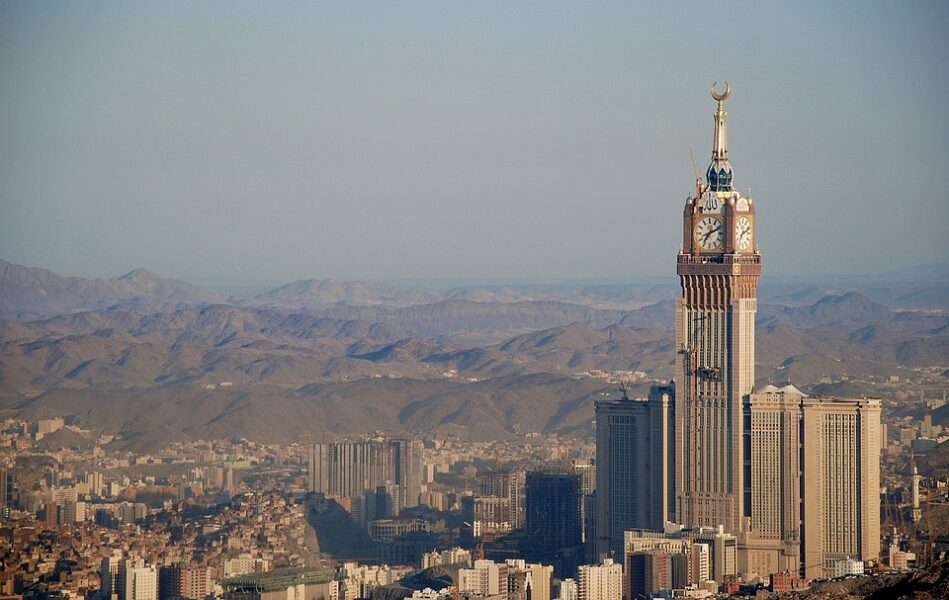
Sending Salawat
Rabi’ al-Awwal can serve as a reminder of the life of our beloved Prophet (saw) and his sacrifice for his ummah. Although we say we love him (saw) endlessly, we may not remember him (saw) as often as we should.
We can use Rabi’ al Awwal as a marker to increase the salawat we send onto him, and to reap the benefits that come with it. There are many benefits and rewards when sending salawat to the Prophet (saw). To inspire you to up your salawat game, we are going to share five benefits of sending salawat upon the Prophet (saw).
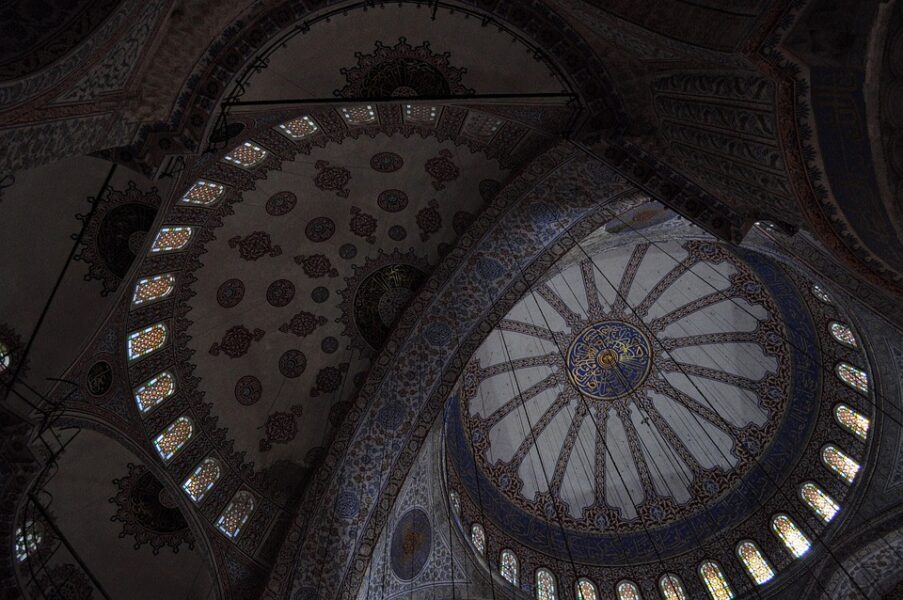
1. Benefit ten times
The Prophet (saw) said: “Whoever sends blessings upon me once, Allah will send blessings upon him tenfold and erase from him ten bad deeds, and will raise him ten degrees in status.” (an-Nasa’i)
We’re all trying to raise our ranks, and have our sins forgiven – all to please Him. Grab the opportunity to have that done by sending just a single salah upon the Prophet (saw).
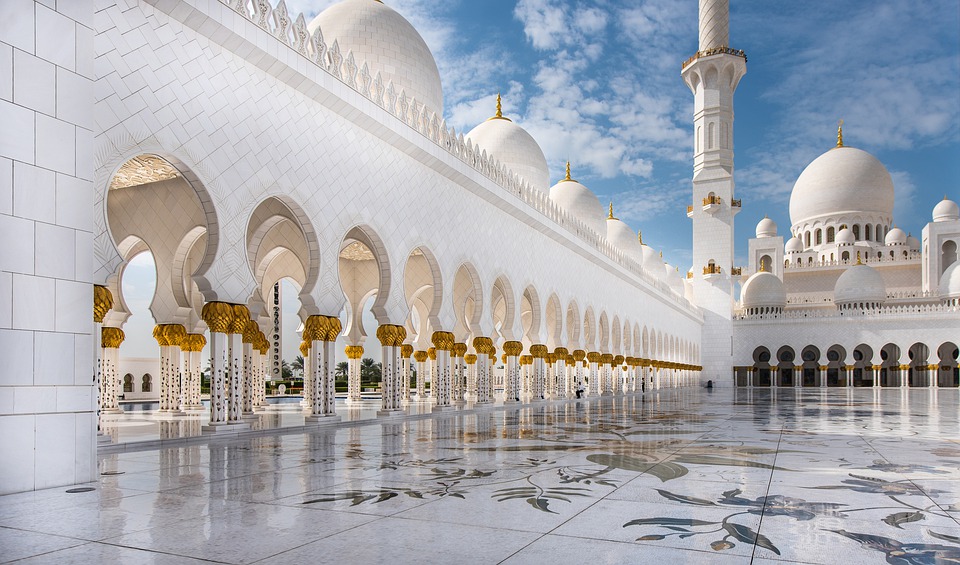
2. It will reach the Prophet (saw)
Imagine being told that the Prophet (saw) would know that you have sent salam to him, what an amazing experience that would be! Well, you don’t need to dream no further, as sending salawat upon the Prophet (saw) will result in angels conveying your salam.
The Prophet (saw) said: “Allah has angels who go around on earth, conveying to me the salaam of my ummah.” (an-Nasa’i)
The Prophet (saw) “Do not take your houses as graves and do not take my grave as a place of festivity (which you visit repeatedly). Send blessings upon me for your greeting will reach me no matter where you are.” (Abu Dawud)
Not only does your salam reach the Prophet (saw) but he (saw) will return it!
“Whenever someone greets me (sends salam), Allah restores my soul to me so that I greet him.” (Ahmad)
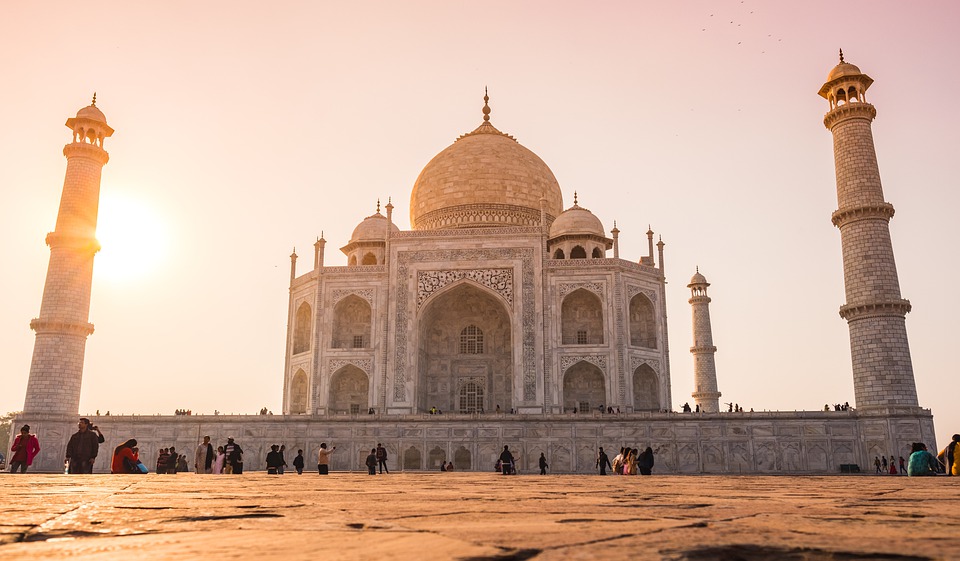
3. Closeness to the Prophet (saw) when it counts most
On the Day like no other, where everyone will be worried about their own fate, concerned whether they have done enough to enter Jannah and to have attained the pleasure of their Lord, there would be no greater comfort than being close to the most beloved of His creation – the Prophet (saw). You can achieve this by sending salawat upon the Prophet in this world, and gain the rewards both in this life and the hereafter.
The Prophet (saw): “The closest of people to me on the Day of Resurrection will be those who sent the most blessings upon me.” (at-Tirmidhi)
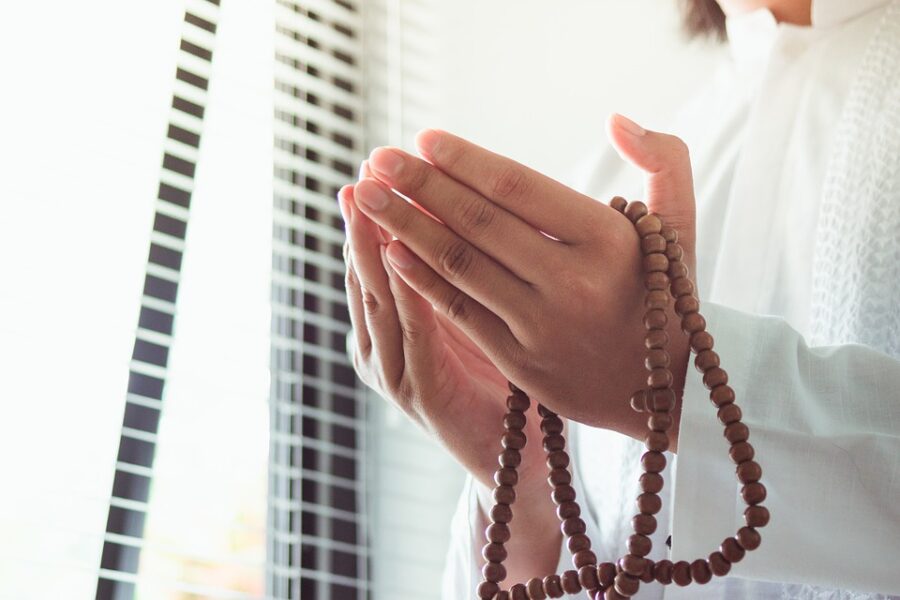
4. A means for your du’a to be accepted
When you make du’a, with the sincerest of hearts, pleading to your Lord for it to be accepted, you wouldn’t want to know that your dua is being suspended between heaven and earth. However, this is the case when you do not send salawat upon the Prophet (saw).
“Du’a is suspended between heaven and earth and none of it is taken up until you send blessings upon your Prophet (saw)” (at-Tirmidhi)

5. Your needs will be taken care of
The Companions of the Prophet (saw) were eager to learn and know how they should best worship Allah (swt). Ubayy ibn Ka’b asked the Prophet (saw), wanting to know how much of his time should be sent in salawat and how much to apportion to du’a.
The Prophet (saw) responded: “Whatever you wish.”
Ubayy said: “One quarter?”
He (saw) said: “Whatever you wish, and if you do more, that will be better for you.”
Ubayy said: “One half?”
He (saw) said: “Whatever you wish and if you do more, that will be better for you.”
Ubayy continued: “Two thirds?”
The Prophet (saw) replied, “Whatever you wish and if you do more, that will be better for you.”
In conclusion, Ubayy resolved: “I will make all of my du‘aa’ for you.”
The Prophet (saw) responded: “Then your concerns will be taken care of and your sins will be forgiven.” (at-Tirmidhi)
The scholars explained that this combines our worldly needs and our concerns for the Hereafter.
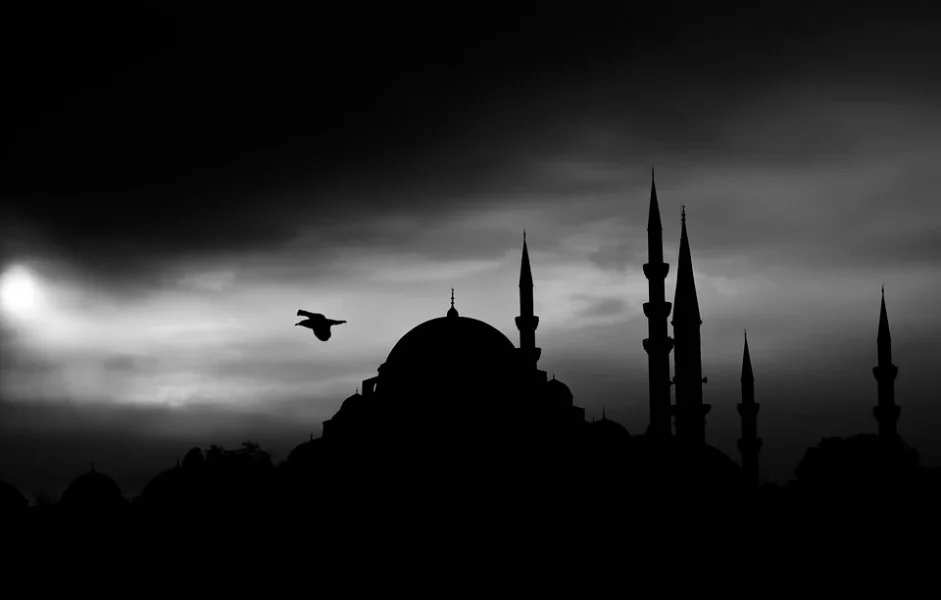
Follow in the footsteps of the beloved (saw)
To love the Prophet (saw) is to emulate his actions, to follow in his footsteps and take heed from what we advised and refrained from. One characteristic of the Prophet (saw) which is mentioned frequently is his charitable, giving and merciful personality. He (saw) was merciful to widows and orphans, and encouraged others to be.
The Prophet (saw) said: “One who cares for widows and the poor is like those who strive in the way of Allah or those who spend their days fasting and their nights praying.” (Bukhari)
He (saw) encouraged us to take care of those less fortunate, to show them affection and mercy, in order to soften our hearts and to suffice our worldly affairs.
“Would you like that your heart becomes soft and that you acquire what you need? Be merciful with the orphan, pat his head and feed him from what you eat. This will soften your heart, and enable you to get what you need.” (at-Tabarani)
In the month of Rabi’ al-Awwal, you can follow in our beloved’s footsteps by being merciful to children growing up like orphans and wives struggling like widows, with their husbands in prison, right here in the UK. Families who are forgotten, concerned about how they will survive amidst inflation and rising food prices. Remind them that there are strangers within the ummah who are following in his footsteps, and be merciful to them as he (saw) would have been.